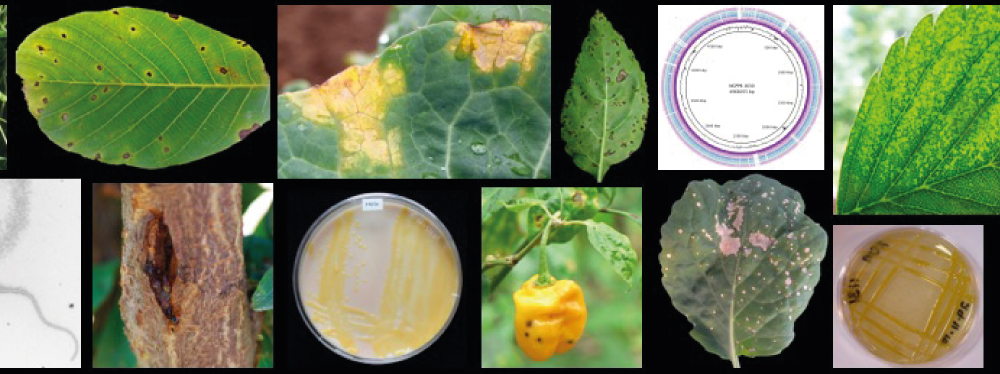COST Action CA16107 EuroXanth
Integração do conhecimento sobre Xanthomonadaceae para gestão integrada de doenças de plantas na Europa
Challenge
The main challenge that is addressed by the Action are present, emerging or re-emerging plant diseases due to infection by bacteria of the Xanthomonadaceae family, which are continually challenging food security and cause significant losses to the COST countries’ economy each year. This challenge demands concerted R&D actions at the international level, which will be supported by the COST Action networking instruments.
Solution
The Management Committee defined four general goals for the COST Action:
Exchange of knowledge about the state-of-the art in phytopathology with respect to members of the Xanthomonadaceae family
Strategic planning of approaches that need to be developed for sustainable plant protection against infection by Xanthomonadaceae
Sharing of technical knowhow, methods and tools (lab work, bioinformatics)
Foresightful career development for early-career investigators
RESEARCH COORDINATION
To develop, implement, compare and standardize methods of pathogen detection by coordinating research on molecular diagnostics of plant-pathogenic Xanthomonadaceae (WG1)
To estimate the risk of epidemics and outbreaks by coordinating research on the genetic diversity and population structure of plant-associated Xanthomonadaceae (WG1).
To develop, distribute and valorize bioinformatics tools for data analysis by coordinating research and development in the field of epidemiology and population genetics (WG1).
To identify key bacterial factors in the microbe-eukaryote interaction at different steps of the infection/dissemination cycle by coordinating research on the pathogen’s biology (WG2).
To identify elicitors of plant defense responses as targets for resistance breeding by coordinating research on pathogen-associated molecular patterns and effector-triggered immunity (WG2).
To discover novel resistance traits by coordinating research on QTL mapping, genome-wide association studies, comparative genomics and transcriptome analyses (WG3).
To generate durably resistant crop cultivars by coordinating research and development in the field of breeding, transgenesis and genome editing of resistance traits (WG3).
To evaluate and establish disease control measurements by coordinating research on the impact of biological products/microorganisms to control xanthomonads and Xylella fastidiosa and to prevent the spread of infections (WG4).
To evaluate and compare approaches to eliminate or reduce vector populations by coordinating research on adapted agronomic practices, effects of volatile compounds, and trapping systems (WG4).

Project Reference
Funding

Intervention Region
NacionalDuration
3 anosStart Date
2017-12-29End Date
2020-12-31Approval Date
2017-12-29Consortium
Partner Countries: Belgium, Bosnia and Herzegovina, Bulgaria, Croatia, Czech Republic, Denmark, Estonia, France, fYR Macedonia, Germany, Greece, Hungary, Israel, Italy, Latvia, Lithuania, Netherlands, Norway, Poland, Portugal, Serbia, Slovenia, Spain, Sweden, Switzerland, Turkey, United KingdomCOST Near Neighbour Countries Institution: Albania, Jordan
COST International Partner Countries: United States of America





